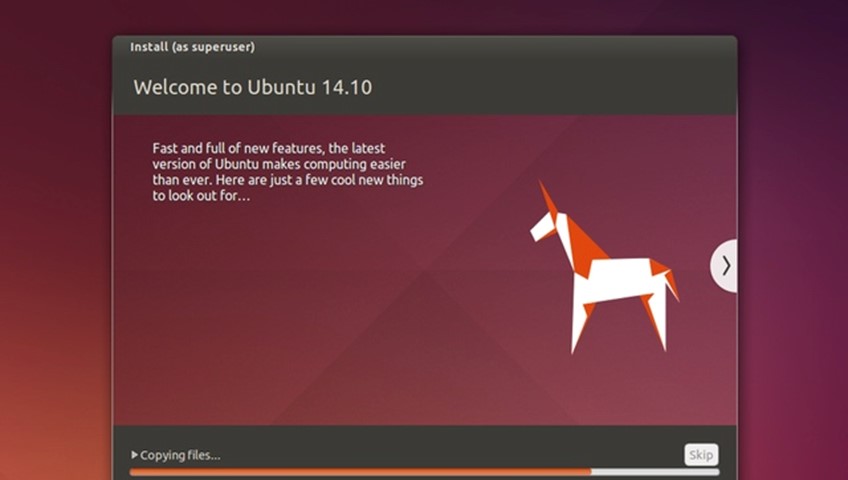
Ubuntu 14.10 Utopic Unicorn released: Happy 10th birthday, Ubuntu!
In a blog post on the Ubuntu site, the Canonical staff runs down the list of highlights for this release. Unfortunately, Utopic Unicorn isn’t exactly a barn burner. The biggest addition is the Ubuntu Developer Tools Centre, but as the name suggests, it’s a developer-focused feature. This will make Android development easier on Ubuntu, but it’s not something that your average user will care about.
With the official release of OS X Yosemite and Windows 10 breaking cover, Ubuntu 14.10 isn’t the most exciting OS release this month, but that’s not to say it’s without merit. For example, this update introduces better IPP Everywhere support right out of the box. If you’re using a modern printer over USB or on a network, this should make your life a whole lot easier. Utopic Unicorn is running on the Linux 3.16 kernel, so there are a number of low-level improvements included as well. Both Power8 and ARM64/ARMv8 CPUs will work better under this release, and GPUs from Nvidia, AMD, and Intel should see improved performance. Little by little, Ubuntu and the Linux kernel itself continue to grow and improve with every release.
If you’d like to try out Ubuntu 14.10 for yourself, you can head on over to the release page, and pick out whichever flavor best suits your needs. I did a fresh install in VirtualBox, and it took roughly 15 minutes to finish — not bad considering I’m not using an SSD.
I’m still not in love with Ubuntu’s brand of interface design, so I’ll be sticking with Mint for my Linux fix for the time being. That said, it’s worth remembering that Mint wouldn’t even exist if it wasn’t for Ubuntu, and the entire Linux community owes a lot to Mark Shuttleworth and Canonical for tearing down usability barriers. I can remember when installing a working Linux distro was an all-day process, and at the end, some things still didn’t work. Now, anyone who can read and click buttons can install Linux on their computer. These past ten years have been a huge step forward, and it only keeps getting better for Linux enthusiasts.

